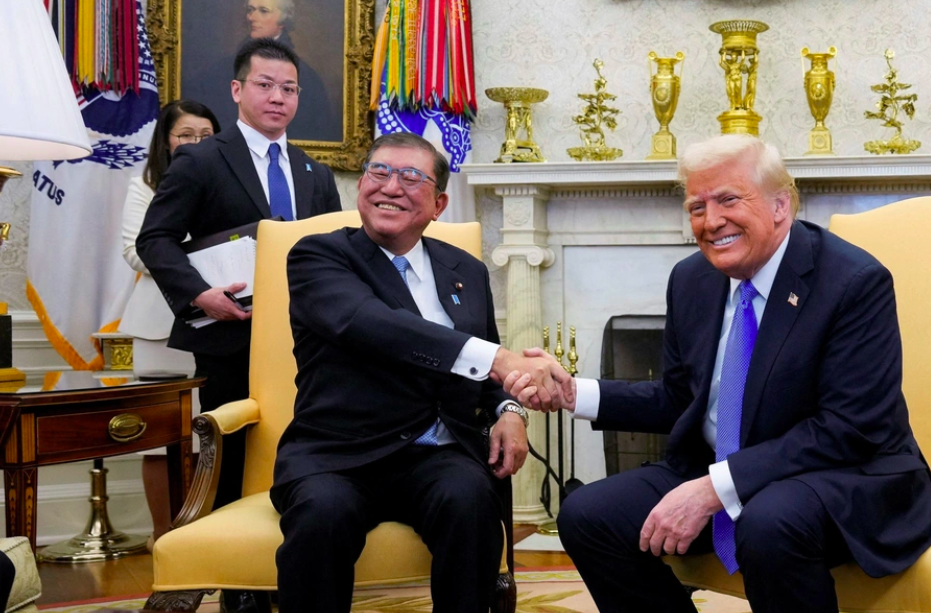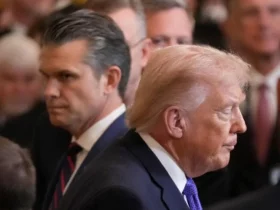Security and Economic Dimensions
Security and Economic Dimensions
By Mehmet Enes Beşer
The second term of President Donald Trump signals the dawn of a new era in US-Japan relations, with opportunities and challenges. Prime Minister Shigeru Ishiba’s government has the daunting task of reconciling security commitments with economic interests, while adjusting to meet the evolving Indo-Pacific dynamics.
Security Cooperation: Deepening the Alliance
The US-Japan alliance has long been a bulwark of stability in East Asia. With the Trump 2.0 government, cooperation in the alliance will be increased even further. Both nations have signaled firm commitments to increasing bilateral security cooperation, specifically in terms of new fields such as cyberspace and the exploration of outer space. Based on the latest technologies such as artificial intelligence and secure cloud computing, it intends to increase information sharing and enhance joint defense capabilities.
Japan’s commitment to doubling the defense spend is a sign of self-help in burden-sharing. The increase may still fall short of the Trump administration’s expectations of Japan contributing more towards the cost of hosting US troops. The negotiations now strengthen the argument in favor of an even-handed approach, sensitive to both budgetary requirements and strategic imperatives.
Economic Relations: Managing Trade Imbalances
US-Japanese economic ties remain at the center of things. President Trump has indicated that America needs to offset the $68 billion trade deficit with Japan through balancing and mutual and fair-trade policies. While tariffs were proposed as a measure, the two presidents preferred this approach to ending trade imbalance through negotiation and increased Japanese investment in the US economy.
Japan’s strategy involves massive investments in America, including Nippon Steel’s investment in US Steel. Other car companies like Toyota and Isuzu are also going to establish new facilities in America as a gesture of commitment towards economic relations consolidation and supporting American jobs opportunities.
Energy Collaboration: Diversifying Supply Chains
Energy security has ranked as one of the key subject matters of concern for US-Japan. Bargaining has seen Japan’s potential involvement in the ambitious $44 billion Alaska LNG project for shipping US natural gas to Asian purchasers. The scheme would diversify Japanese energy supplies away from the Middle East and align with the Trump administration’s vision for transforming the world based on energy.
Diplomatic Engagement: Building Personal Rapport
Personal chemistry of leaders in global affairs is incredibly significant. Prime Minister Ishiba’s visit to Washington was aimed at replicating the chemistry between the then-Prime Minister Shinzo Abe and President Trump. Although they are personalities who don’t see eye to eye, both leaders have been bent on developing a useful relationship of mutual respect and shared strategic interests.
Charting a Balanced Path Forward
The US-Japan relationship under Trump 2.0 is a crossroads. Imposing greater security cooperation, rectifying economic imbalances, and greater energy cooperation are all necessary pillars of the multi-faceted relationship.
The aggressive measures being initiated by Japan to utilize extra defense money and invest in the US economy are evidence of the nation’s determination to share the collective burdens. Protectionist pitfalls still have to be managed deftly by subtle diplomacy, but the sense of urgency is to generate a situation that will be acceptable to both parties.
Energy initiatives like the Alaska LNG initiative present each nation with the prospect of achieving strategic objectives, but these should be effectively planned and a balancing strategy between economic and environmental issues.
Finally, the success or failure of the US-Japan relationship will rest on continued communication, adaptability in responding to the transformation of global conditions, and a steadfast dedication to the principles that have characterized this enduring relationship.

















Leave a Reply